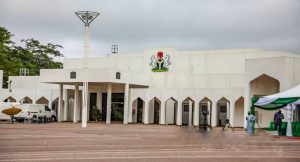
“Good leaders must first become good servants.” ~Robert K. Greenleaf
Since assuming the role of Group Managing Director at the Nigerian National Petroleum Company Limited (NNPCL) in 2019, Mele Kyari has emerged as a figure of transparency and accountability in an industry often clouded by opacity. His record speaks volumes, yet, unsurprisingly, his success has also attracted its share of detractors.
Kyari inherited an organization marred by questionable practices and widespread skepticism. However, through his Transparency, Accountability, and Performance Excellence (TAPE) initiative, he has taken significant steps to reform NNPCL.
Among his achievements are the publication of audited financial statements and the regular release of monthly financial and operations reports—measures that have introduced a new level of transparency into the company’s dealings. His role in spearheading the rehabilitation of Nigeria’s refineries has also been widely noted.
Despite these strides, there are those who seem determined to undermine Kyari’s efforts.It is clear that jealousy and fear of change fuel much of the opposition against him. However, Kyari’s accomplishments are difficult to ignore.
His leadership has not only garnered the support of the Nigerian government but has also been met with widespread approval from the public. President Bola Tinubu’s recent recognition of Kyari with an award is a testament to his contributions, particularly in the realm of the Presidential CNG Initiative (PI-CNG), which aims to expand the use of compressed natural gas across the nation.
As the Annual General Meeting of the Nigerian National Petroleum Company Limited approaches, the nation is in for a pleasant surprise. Under the leadership of Mele Kyari, the management of the country’s economic backbone is set to announce an unprecedented profit for the year under review. This remarkable achievement marks the first time in the corporation’s 47-year history that such significant strides have been made.
This is a powerful testament to the management skills of GCEO Kyari, one that is sure to surprise his detractors. Such an accomplishment should prompt any well-meaning citizen to applaud the NNPCL head honcho. But will they?
The path forward for Kyari will not be without challenges. In a sector as critical and contested as oil and gas, resistance to change is inevitable.
Yet, Kyari’s tenure at NNPCL demonstrates that progress is possible, even amidst fierce opposition. His work continues to be a beacon for those who believe in the potential for reform within Nigeria’s oil and gas industry.
Mele Kyari’s leadership remains a thorn in the side of those who prefer the status quo, but as long as he stays the course, his achievements will continue to outshine the efforts of his detractors.



